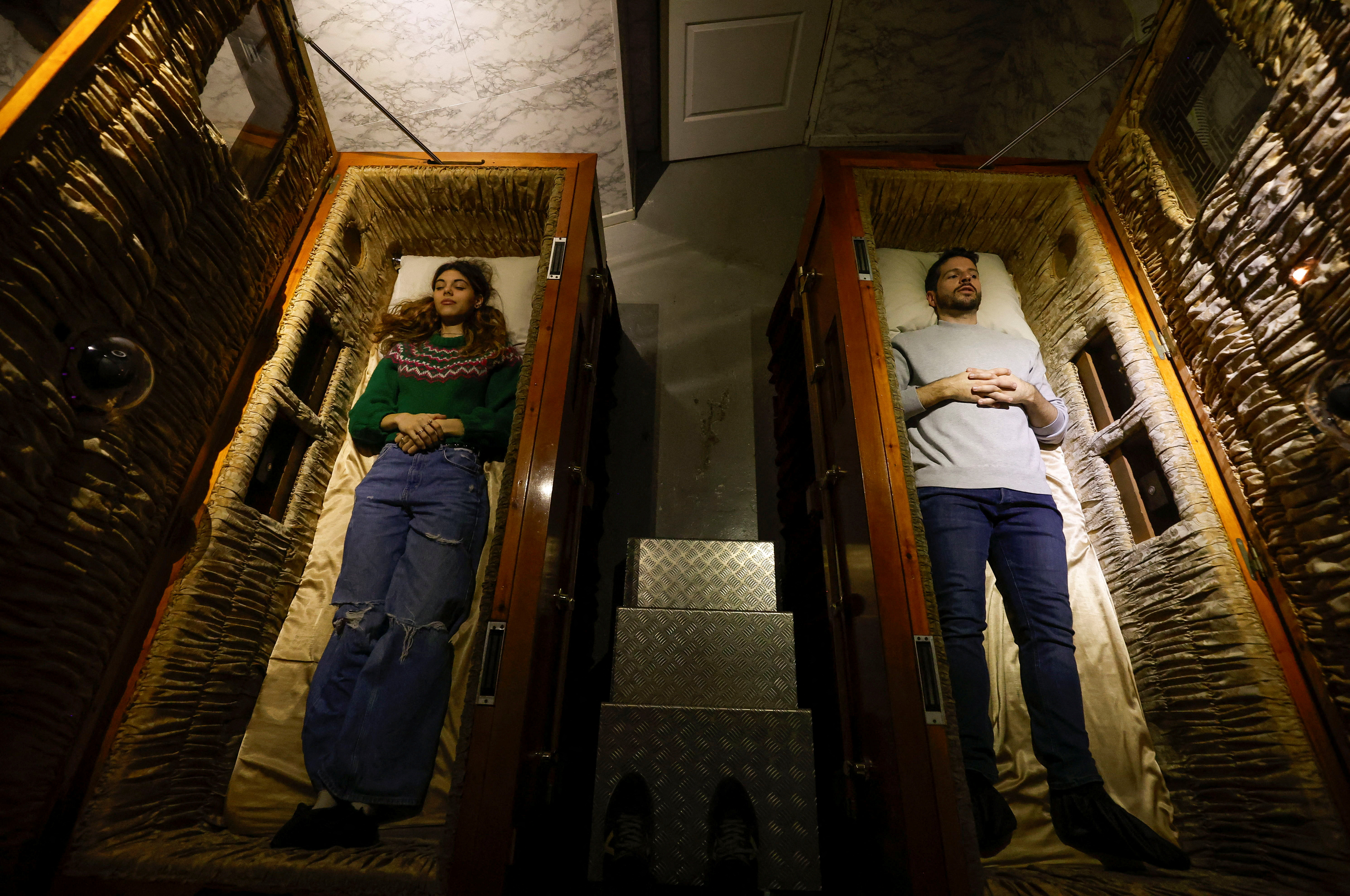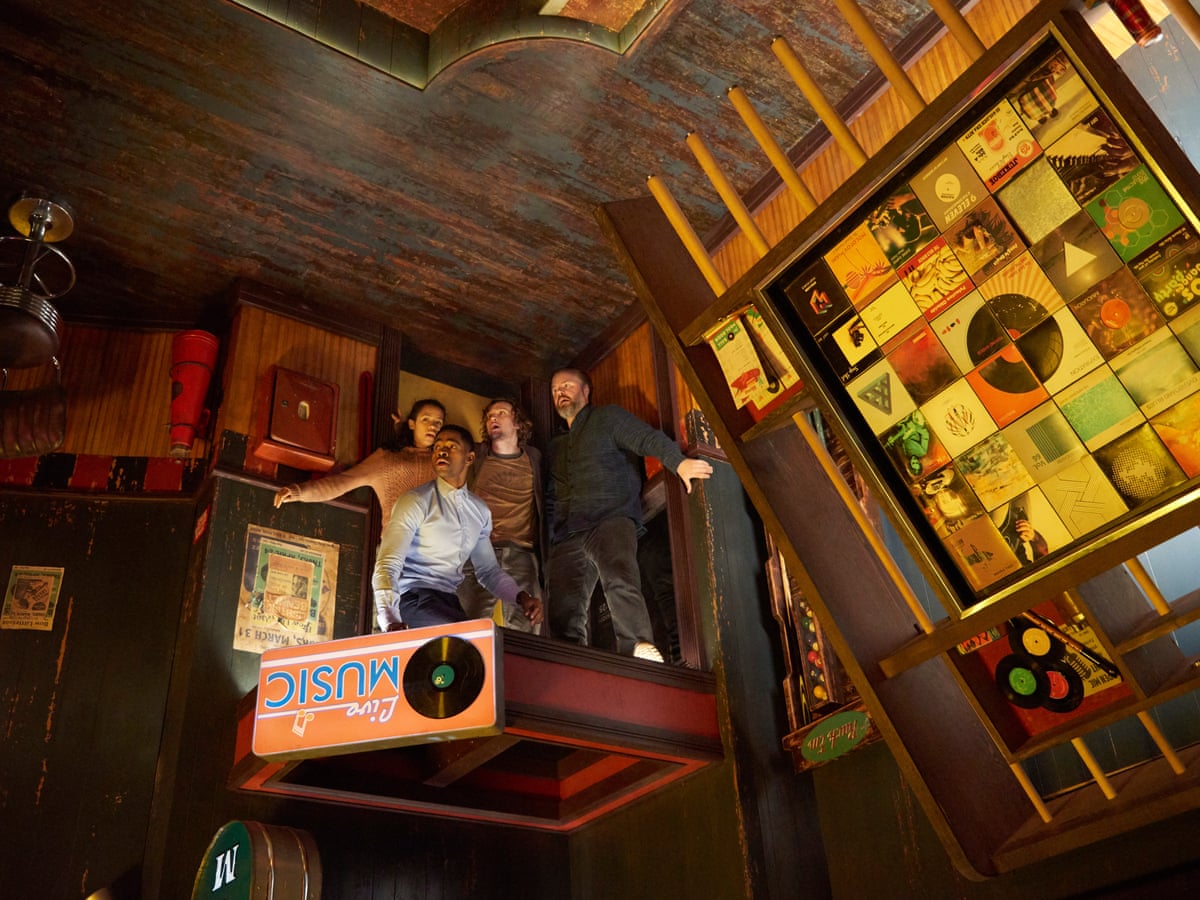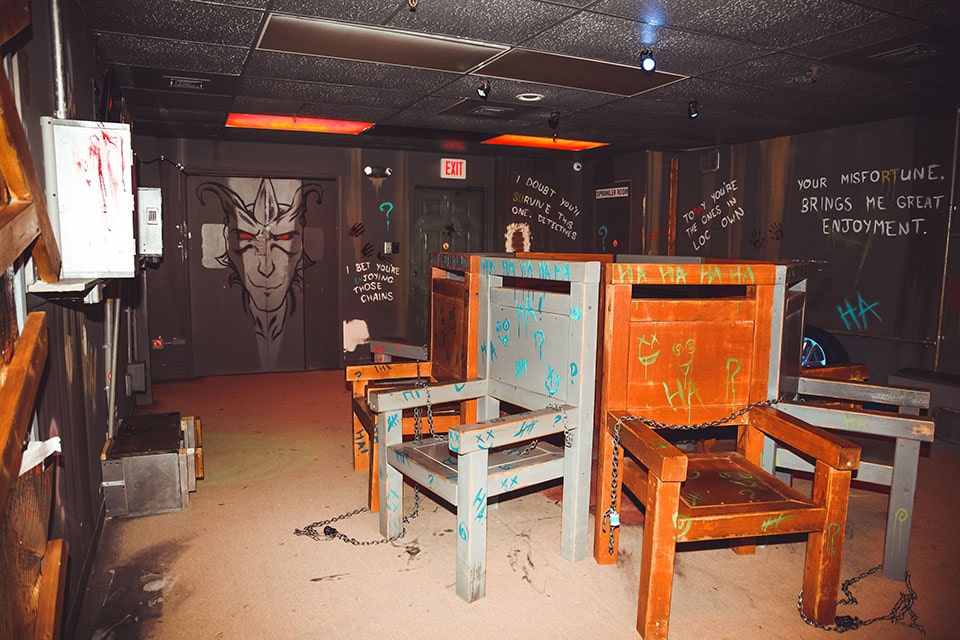Thrilling Escape Room in Minneapolis Mall of America-- Book Currently
Thrilling Escape Room in Minneapolis Mall of America-- Book Currently
Blog Article
Team Approaches: Just How to Work together Successfully in a Retreat Space
Browsing the complexities of an escape area requires greater than simple excitement; it requires a well-coordinated approach based in clear communication, tactical role tasks, and proficient time administration. Teams should actively pay attention per member's insights, appoint roles that align with private strengths, and preserve normal check-ins to guarantee emphasis and prevent redundancy. By cultivating an atmosphere that values communication and adaptability, groups can dramatically increase their efficiency and success rates. The nuances of these techniques can change the experience, however how exactly can they be applied to take full advantage of the capacity for success?
Establish Clear Interaction

To help with clear communication, it is vital to assign a main factor of contact for information circulation. Brief, concentrated updates from each group participant can keep the team notified without frustrating them with info.

Designate Functions Tactically
While clear communication sets the foundation for effective synergy, assigning duties purposefully guarantees that each staff member's toughness are used successfully. In a retreat room situation, the time-sensitive and complex nature of challenges requires an efficient approach to job delegation. By recognizing and leveraging private competencies, groups can optimize their problem-solving capabilities and improve overall efficiency.
Somebody with a keen eye for detail might stand out in discovering covert items, while a rational thinker might be much better fit to solving puzzles. This role often calls for solid business and interpersonal skills.
2nd, guarantee that duties are versatile and versatile. As new challenges emerge, the group has to have the ability to pivot, reallocating tasks as required. This flexibility assists keep momentum and avoids bottlenecks that could occur as a result of stiff duty jobs.
Ultimately, a calculated technique to role job not only optimizes the strengths of each employee but likewise cultivates a cohesive atmosphere, driving the team in the direction of an effective retreat.
Utilize Diverse Skills
Acknowledging and utilizing the diverse abilities within your team can considerably raise your performance in a retreat area. Each staff member anchor brings special toughness to the table, and effectively leveraging these abilities can speed up analytical and improve overall performance. A group member with solid logical skills might succeed at understanding intricate codes or patterns, while an additional with eager empirical abilities might quickly detect hidden ideas that others may forget.
Reliable interaction is key to utilizing these diverse skills. Urge team participants to voice their understandings and concepts immediately, making certain that all prospective remedies are taken into consideration. This comprehensive approach cultivates a vibrant setting where creative thinking and important thinking can flourish. In addition, assigning jobs that align with each member's strengths can stop traffic jams and make sure that progression is constant.
In addition, variety in abilities commonly translates to variety in believing designs, which is indispensable in a retreat room setup. While some challenges might call for rational thinking and precision, others could take advantage of imaginative and side reasoning. By acknowledging and leveraging this diversity, groups can attend to a wider series of obstacles extra successfully, thereby raising their possibilities of a successful escape.
Manage Time Efficiently

First, designate preliminary minutes for a fast survey of the room. Determine noticeable challenges and split jobs based on team participants' toughness, making certain that nobody is idle. Establish inner time checkpoints to evaluate progress periodically; for instance, objective to have half the problems solved by the mid-point of the video game. This practice can assist maintain the group concentrated and protect against time from slipping away unnoticed.
Furthermore, stay clear of passage vision. If a challenge is taking as well long, revolve staff member or go on to one more challenge, returning later on with fresh perspectives. Interaction is extremely important-- maintain everybody upgraded on solved challenges and staying jobs to avoid redundant initiatives.
Last but not least, utilize any type of hints or clues moderately yet purposefully - best escape room. Understanding when to ask for aid can save important time. By adhering to these time monitoring principles, teams can considerably enhance their possibilities of an effective and delightful retreat space experience
Debrief and Mirror
Representation is a vital facet of team advancement and enhancement in the context of escape spaces. Once the obstacle is completed, whether successfully or not, it is essential for the team to participate in a structured debriefing session. This procedure permits employee to evaluate their performance, determine strengths, and pinpoint areas for enhancement.
Begin the debrief by reviewing what worked out. Highlight certain instances of efficient interaction, analytic, and collaboration. Recognizing these favorable actions strengthens them and motivates their repeating in future challenges.
Following, resolve the challenges ran into. Go over minutes of confusion, miscommunication, or inefficient strategies. Motivate an open and positive discussion where employee can share their point of views without fear of criticism. This promotes a culture additional hints of continual enhancement and knowing.
Final Thought
In verdict, effective cooperation in a retreat space is based upon clear interaction, critical role jobs, the reliable application of varied skills, and skillful time management. By developing a cohesive and flexible team setting, the chance of successfully fixing puzzles and achieving the goal of leaving the space is dramatically boosted.
Report this page